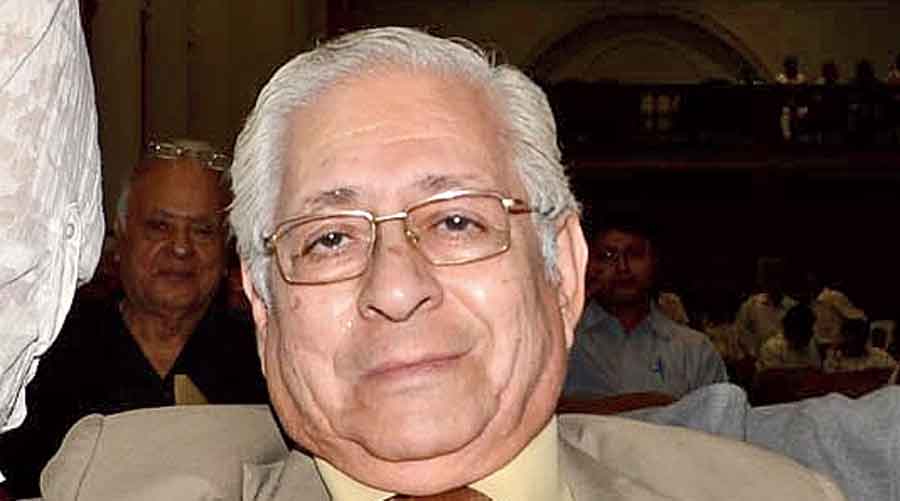Soli Sorabjee, eminent jurist who had been the country’s highest law officer and appeared in cases that had far-reaching impact on the Constitution, governance and free speech, passed away on Friday morning after a battle with Covid-19. He was 91.
Sorabjee is survived by his wife, a daughter and two sons. Sorabjee had till recently been active not only in the legal arena but also used to pen articles for media houses on complicated legal matters.
Sorabjee had been attorney-general of India from 1989 to 1990 and thereafter from 1998 to 2004. Then Prime Minister Atal Bihari Vajpayee often consulted him on important national issues.
Born in a Parsi family in 1930, Sorabjee, who began legal practice in 1953, had appeared in several important cases such as the Keshavananda Bharati matter in which a 13-judge bench had enunciated the “basic structure” theory of the Constitution that forbade changes to the important facets of the document.
He had also been part of the S.R. Bommai case in which it was laid down that the imposition of President’s rule is subject to judicial review and a state cannot be brought under central rule unless “…a situation has arisen where the government of a state cannot be carried on in accordance with the provisions of the Constitution”.
Sorabjee had in 2015 forcefully argued before the Supreme Court against Section 66A of the IT Act on behalf of law student Shreya Singhal and succeeded in getting the impugned provision quashed as unconstitutional. Before being struck down, Section 66A provided unbridled powers to the authorities to arrest any person for posting on the Internet any material deemed offensive, indecent or inconvenient or could cause public disorder. A person convicted under the Act was liable for imprisonment for up to three years.
Sorabjee had been appointed by the United Nations as a special rapporteur for Nigeria in 1997 to report on the human rights situation in the country and later became a member and then the chairman of the UN Sub-Commission on the Promotion and Protection of Human Rights from 1998 to 2004.
He was also a member of the United Nations Sub-Commission on Prevention of Discrimination and Protection of Minorities. Sorabjee had served as a member of the Permanent Court of Arbitration at The Hague from 2000 to 2006.
Sorabjee had led India’s fight at the International Court of Justice (ICJ) when Pakistan sought compensation from India for downing of their naval patrol aircraft Atlantic in 1999 just after the Kargil war.
The ICJ at the Hague had ruled in India’s favour after taking note of submissions of Sorabjee and dismissed Pakistan’s claim for compensation, saying it had no jurisdiction over the matter.
Sorabjee had also appeared and worked for the Citizen’s Justice Committee, which represented anti-Sikh riots victims.
Sorabjee was known to be soft, suave and humble. He was always accessible to the media and was forthcoming with his views on various issues.
Even if a rookie reporter with no prior acquaintance sought his views on the corridors of courts, Sorabjee always obliged with his trademark smile.
Chief Justice of India N.V. Ramana expressed deep sadness over Sorabjee’s death and recalled that he had made immeasurable contributions in enriching the global jurisprudence of human rights and fundamental rights during his nearly 68-year-long career.
“The matters that he had argued before the courts and the judgments that he could secure; the books, essays, papers of international repute and the newspaper articles that he had authored; the independent opinions he could tender to the government in his capacity as the attorney-general — they all stand testimony to his deep commitment to democratic values. He not only lived up to the mandate of attorney-general as enshrined in the Constitution, but also raised the bar in the discharge of his constitutional duties,” Justice Ramana said.
CJI Ramana said that being a champion of “freedom of press”, Sorabjee had effectively used the media as a platform to elucidate the nuances of complicated legal issues on an almost daily basis till recently, literally giving lessons in law to millions of common people who otherwise could not have followed what was happening in the judicial world.
Additional reporting by PTI











